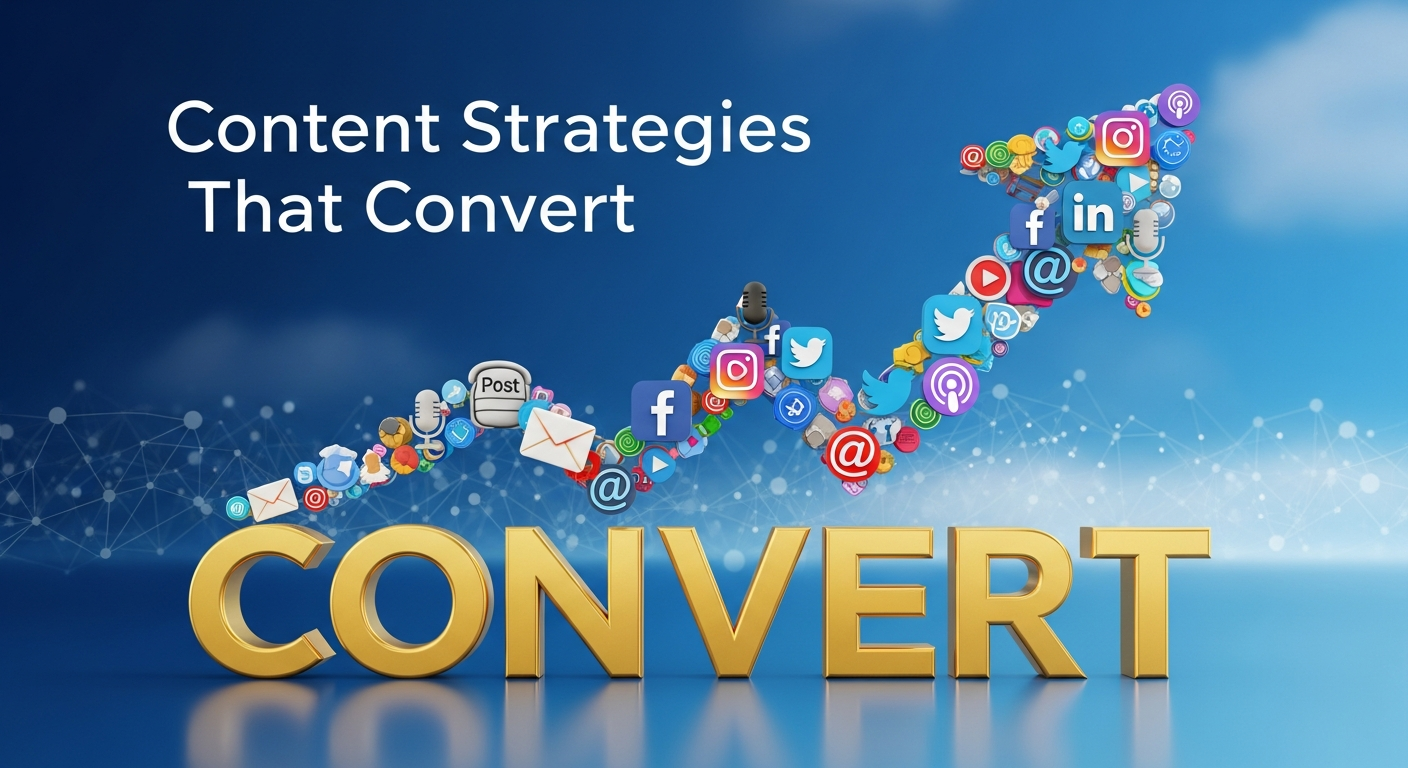The Ultimate Guide to Influencer Affiliate Marketing

Influencer affiliate marketing enables brands and creators to drive sales through trusted recommendations and performance-based commissions. By combining authentic content with trackable results, this strategy delivers higher conversions, lower risk, and long-term revenue potential. With the right partners, platforms, and content strategy, influencer affiliate marketing becomes a scalable growth engine.
Affiliate marketing has evolved far beyond banner ads and email newsletters. Social media influencers now drive billions in sales through authentic product recommendations, creating a marketing channel that feels less like advertising and more like trusted advice from a friend.
This comprehensive guide explores how influencer affiliate marketing works, why it’s become such a powerful revenue driver, and how both brands and content creators can leverage this strategy effectively. Whether you’re a business looking to expand your affiliate program or an influencer ready to monetize your audience, you’ll discover actionable strategies to build profitable partnerships.
We’ll cover everything from setting up your first campaign to measuring success, plus real-world examples that demonstrate the potential of this marketing approach.
What Is Influencer Affiliate Marketing?

Influencer affiliate marketing combines the trust and reach of social media influencers with performance-based affiliate compensation. Instead of paying upfront fees for sponsored posts, brands provide influencers with unique tracking links or discount codes. The influencer earns a commission only when their audience makes a purchase.
This model benefits everyone involved. Brands reduce their marketing risk by paying only for actual sales. Influencers can monetize their content without compromising their authentic voice. Consumers discover products through trusted sources rather than traditional advertising.
The key difference between influencer affiliate marketing and standard sponsorships lies in the payment structure. Traditional sponsored content pays influencers a flat fee regardless of results. Affiliate partnerships tie compensation directly to performance, aligning everyone’s interests toward driving actual sales. Learn more about How Affiliate Marketing Can Help You Become an Influencer.
Why Influencer Affiliate Marketing Works
The effectiveness of influencer affiliate marketing stems from several psychological and practical factors that traditional advertising struggles to replicate.
Trust and Authenticity Drive Purchases
Consumers trust recommendations from people they follow and admire. When an influencer shares their genuine experience with a product, it carries significantly more weight than a corporate advertisement. This trust translates into higher conversion rates and more qualified traffic for brands.
Research consistently shows that people are more likely to buy products recommended by individuals they perceive as similar to themselves or aspirational figures they want to emulate. Influencers occupy this unique position in their followers’ lives.
Reduced Financial Risk for Brands
Traditional advertising requires significant upfront investment with uncertain returns. Influencer affiliate marketing flips this model. Brands only pay when they generate actual sales, making it an attractive option for businesses with limited marketing budgets or those testing new markets.
This performance-based approach allows brands to scale their marketing efforts more confidently, knowing that their investment directly correlates with revenue generation.
Multiple Revenue Streams for Creators
Content creators constantly seek sustainable monetization strategies that don’t alienate their audience. Affiliate marketing provides ongoing revenue potential from a single piece of content, as links can continue generating commissions long after the initial post goes live.
Unlike one-time sponsored posts, successful affiliate content can provide passive income for months or even years, making it an attractive long-term strategy for influencers.
Setting Up Your Influencer Affiliate Strategy
Success in influencer affiliate marketing requires careful planning and strategic execution. Both brands and influencers need to approach these partnerships with clear goals and realistic expectations.
For Brands: Building Your Program
Start by defining your ideal influencer profile. Consider factors beyond follower count, such as audience demographics, engagement rates, content quality, and brand alignment. Micro-influencers with smaller but highly engaged audiences often deliver better results than mega-influencers with millions of followers.
Create compelling affiliate offers that motivate both influencers and their audiences to take action. This might include competitive commission rates, exclusive discount codes, or special product bundles available only through affiliate links.
Develop clear guidelines and expectations for your affiliate partners. Specify content requirements, disclosure obligations, and any restricted promotional methods. Transparency from the beginning prevents misunderstandings and maintains positive relationships.
For Influencers: Choosing the Right Partners
Evaluate potential affiliate partnerships based on audience relevance rather than commission rates alone. Products that genuinely resonate with your followers will perform better long-term than high-paying offers for irrelevant items.
Consider the brand’s reputation, product quality, and customer service standards. Your recommendation reflects on your personal brand, so partner only with companies you’d genuinely endorse to friends and family.
Negotiate fair commission structures that reflect your audience size, engagement rates, and promotional efforts. Don’t undervalue your influence, but remain realistic about expected performance metrics.
Content Strategies That Convert

Creating effective affiliate content requires balancing promotional messaging with valuable, engaging content that serves your audience’s interests.
Educational Content Approaches
Tutorial videos, how-to guides, and educational posts naturally incorporate product recommendations while providing genuine value. These formats allow influencers to demonstrate products in action and address common questions or concerns their audience might have.
Before-and-after content, unboxing videos, and detailed product reviews help potential customers understand exactly what they’re purchasing and how it might benefit them. This transparency builds trust and reduces buyer’s remorse.
Storytelling and Personal Experience
Share personal stories about how specific products solved problems or enhanced your life. Authentic testimonials resonate more powerfully than generic product descriptions. Discuss both positives and any limitations you’ve experienced to maintain credibility.
Lifestyle integration content shows products in natural contexts rather than obvious promotional settings. This approach helps followers visualize how items might fit into their own lives.
Seasonal and Trending Content
Align affiliate promotions with relevant seasons, holidays, or trending topics to increase relevance and urgency. Gift guides, seasonal fashion hauls, and holiday shopping recommendations perform particularly well during appropriate time periods.
Stay current with platform algorithms and trending content formats to maximize your reach and engagement potential.
Measuring Success and Optimizing Performance
Effective measurement goes beyond simple click-through rates and conversion numbers. Comprehensive analytics help both brands and influencers understand what’s working and identify opportunities for improvement.
Key Performance Metrics
Track click-through rates, conversion rates, average order values, and total revenue generated through each partnership. These metrics provide insight into both traffic quality and audience purchasing behavior.
Monitor engagement metrics on affiliate content, including likes, comments, shares, and saves. High engagement often correlates with better affiliate performance and indicates content that resonates with your audience.
Long-Term Relationship Building
Focus on building sustainable partnerships rather than one-off promotional campaigns. Long-term relationships benefit everyone involved by allowing for better content planning, stronger audience trust, and more consistent revenue streams.
Regular communication between brands and influencers ensures campaigns stay aligned with broader marketing goals and allows for real-time optimization based on performance data.
Testing and Optimization
Experiment with different content formats, posting times, and promotional strategies to identify what drives the best results for your specific audience. A/B testing different approaches provides valuable data for future campaigns.
Continuously refine your strategy based on performance data and audience feedback. What works today might not work tomorrow as platforms and audience preferences evolve.
Legal Considerations and Best Practices

Influencer affiliate marketing operates within a complex regulatory environment that requires careful attention to disclosure requirements and advertising standards.
FTC Disclosure Requirements
The Federal Trade Commission requires clear, conspicuous disclosure of affiliate relationships. Use hashtags like #ad, #affiliate, or #sponsored in prominent locations where your audience will notice them. Burying disclosures in long caption text or using ambiguous language can result in regulatory issues.
Platform-specific disclosure tools, such as Instagram’s “Paid Partnership” labels, provide additional transparency options that complement text-based disclosures.
International Regulations
Different countries have varying requirements for affiliate marketing disclosures. If your audience spans multiple regions, research and comply with the most stringent applicable regulations to ensure comprehensive compliance.
Building Long-Term Success
Sustainable success in influencer affiliate marketing requires patience, consistency, and genuine commitment to serving your audience’s needs.
Focus on products and brands that align with your values and audience interests. Short-term gains from promoting irrelevant products often damage long-term credibility and earning potential. Building a reputation for trustworthy recommendations creates compound value over time.
Invest in understanding your audience deeply. Regular surveys, comment engagement, and direct messaging help you stay connected to their evolving needs and preferences. This knowledge enables better product selection and more effective promotional strategies.
Continue learning and adapting as the industry evolves. Platform algorithms change, new promotional formats emerge, and consumer behavior shifts. Staying informed and flexible ensures your affiliate marketing strategy remains effective.
Influencer affiliate marketing represents a powerful opportunity for authentic, performance-driven partnerships between brands and content creators. Success requires strategic thinking, genuine audience focus, and commitment to building trust over time. Start with small partnerships, measure everything, and scale what works for your unique situation.
Conclusion
Influencer affiliate marketing combines authenticity, trust, and performance-based rewards into a powerful revenue strategy. By aligning influencer credibility with measurable outcomes, brands reduce risk while creators unlock scalable income opportunities. Success depends on strategic partnerships, transparent tracking, and audience-first content. When executed thoughtfully, influencer affiliate marketing delivers sustainable growth for everyone involved.
Frequently Asked Questions (FAQs)
What is influencer affiliate marketing?
Influencer affiliate marketing is a performance-based marketing model where influencers promote products or services using unique tracking links or discount codes. Influencers earn a commission only when their audience completes a specific action, usually a purchase. This approach combines the trust influencers have built with their followers and the accountability of affiliate marketing, making it beneficial for brands, creators, and consumers alike.
How is influencer affiliate marketing different from sponsorships?
Influencer affiliate marketing differs from sponsorships mainly in payment structure. Sponsorships typically involve a fixed upfront fee regardless of performance, while affiliate marketing compensates influencers based on actual sales or conversions. Affiliate partnerships align incentives for both brands and influencers, encouraging ongoing promotion and long-term collaboration rather than one-time promotional posts.
Is influencer affiliate marketing cost-effective for brands?
Yes, influencer affiliate marketing is highly cost-effective for brands because it minimizes financial risk. Brands only pay commissions when measurable results are achieved. This makes it especially attractive for startups and businesses testing new markets. The performance-based model ensures that marketing spend is directly tied to revenue generation.
Can small influencers succeed with affiliate marketing?
Small influencers, often called micro-influencers, can be very successful with affiliate marketing. Their audiences are usually more niche and highly engaged, leading to higher trust and conversion rates. While their reach may be smaller, the quality of engagement often results in strong performance and consistent earnings over time.
Which platforms work best for affiliate influencers?
The best platform depends on the influencer’s niche and content style. Instagram and TikTok work well for lifestyle, fashion, and beauty products, while YouTube is ideal for tutorials and reviews. Blogs and Pinterest are excellent for evergreen affiliate content that generates long-term traffic and passive income.
How do influencers get paid in affiliate marketing?
Influencers get paid through commissions tracked via affiliate links, discount codes, or referral systems. Payments are typically calculated as a percentage of each sale and are distributed on a scheduled basis once a minimum payout threshold is reached. Many programs also provide dashboards for tracking earnings and performance.
Are affiliate links better than discount codes?
Affiliate links and discount codes both have advantages. Affiliate links offer precise tracking and are ideal for online content, while discount codes provide an incentive for faster conversions and can be easier for followers to remember. Many successful campaigns use a combination of both to maximize results.
How long does it take to see results?
Results can vary depending on audience size, engagement, and content quality. Some influencers see sales within days, while others may take weeks or months to build momentum. Consistent content creation and trust-building are key factors that influence how quickly results appear.
Is influencer affiliate marketing suitable for B2B brands?
Yes, influencer affiliate marketing can be effective for B2B brands, especially when working with industry experts, consultants, or niche content creators. Long-form content such as case studies, webinars, and product demos often performs well in B2B affiliate campaigns, driving high-quality leads and conversions.
What content formats convert best?
Content formats that educate and demonstrate value tend to convert best. These include product reviews, tutorials, comparison posts, unboxing videos, and real-life use cases. Content that addresses common questions and pain points builds trust and increases purchase confidence.
How important are disclosures in affiliate marketing?
Disclosures are extremely important in affiliate marketing. Legal regulations require influencers to clearly inform their audience about affiliate relationships. Transparent disclosures build trust, protect both brands and creators from legal issues, and reinforce ethical marketing practices.
Can influencer affiliate marketing generate passive income?
Yes, influencer affiliate marketing can generate passive income, especially through evergreen content such as blogs, YouTube videos, and pinned social posts. Once published, this content can continue driving traffic and commissions over time with minimal ongoing effort.





